There’s an old saying that a bad day’s fishing is better than a good day at work. It’s much more than that though, especially where fly fishing is concerned. There’s something unique about the rhythm of casting a fly, the focus on fishing and outwitting the fish, and being one with nature that can produce an almost zen like state.
Norman Maclean, author of “A River Runs Through It” (later made into a memorable film with Brad Pitt that won an Oscar for Cinematography) remarked:
“one great thing about fly fishing is that after a while nothing exists of the world but thoughts about fly fishing”
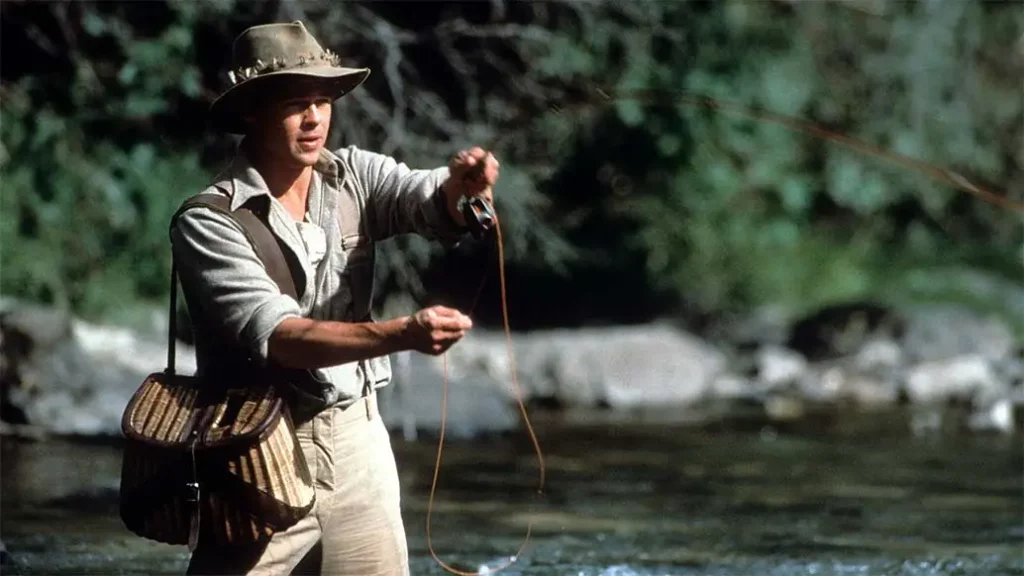
Our Mental Health Is Getting Worse
Today’s digital world is fast paced, always on and it’s made our lives better in many ways, but it’s also made us more stressed. Witness the rise of yoga, meditation, wellbeing apps, therapists, mindfulness and such like as an antidote to our deteriorating mental health.
The British Medical Association (BMA) says the percentage of adults aged 16-74 with a common mental disorder, who were accessing mental health treatment has risen from 23.1% in 2000 to 39.4% in 2014, representing an increase of over two thirds (71%). And it’s got worse.
COVID-19 has only accelerated the trend, driving an increase in the number of people who are in contact with secondary mental health services. According to the BMA, mental health services in England received a record 4.6 million referrals during 2022 (up 22% from 2019), and there simply aren’t enough doctors to match it.
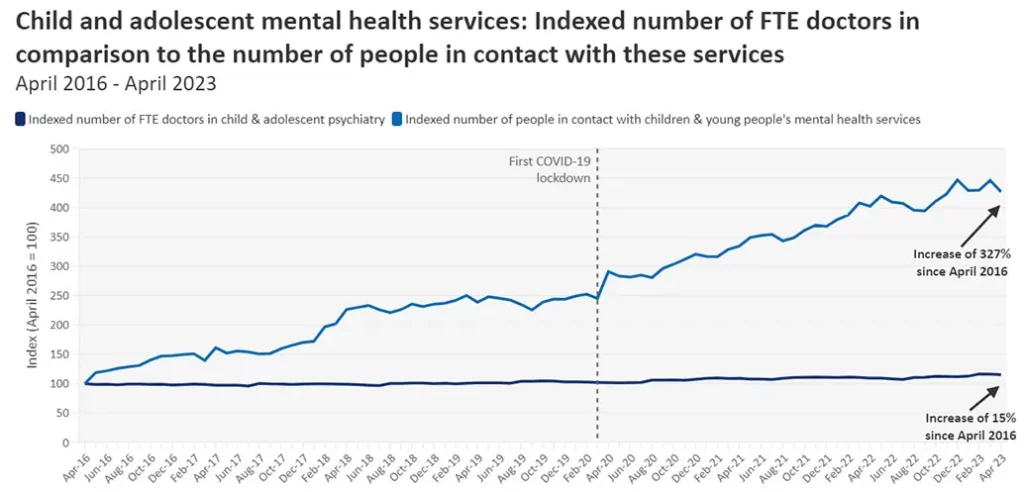
Your Objective Isn’t The Endgame
So how exactly can fly fishing help? Firstly, let’s get one thing straight here. Actually catching fish isn’t that important. If you wanted to catch a fish, there are more effective ways than fly fishing. Former editor of The New York Times Howell Raines put it much better than I could when he said:
“fly fishing is the most beautiful way of trying to catch a fish; not the most efficient, just as ballet is the most beautiful way of moving the body between two points, not the most direct. Fly fishing is to fishing as ballet is to walking”
These days the majority of fly fishers now practise catch and release, and personally speaking I much prefer the satisfaction of safely releasing a fish than actually catching it. Another American, author Zane Grey, said:
“if I fished only to capture fish, my fishing trips would have ended long ago”
So if it’s not to catch fish, why do we do it? There is a myriad of reasons here, however in broad terms I think they can all be narrowed down to one simple answer – how it makes you feel.
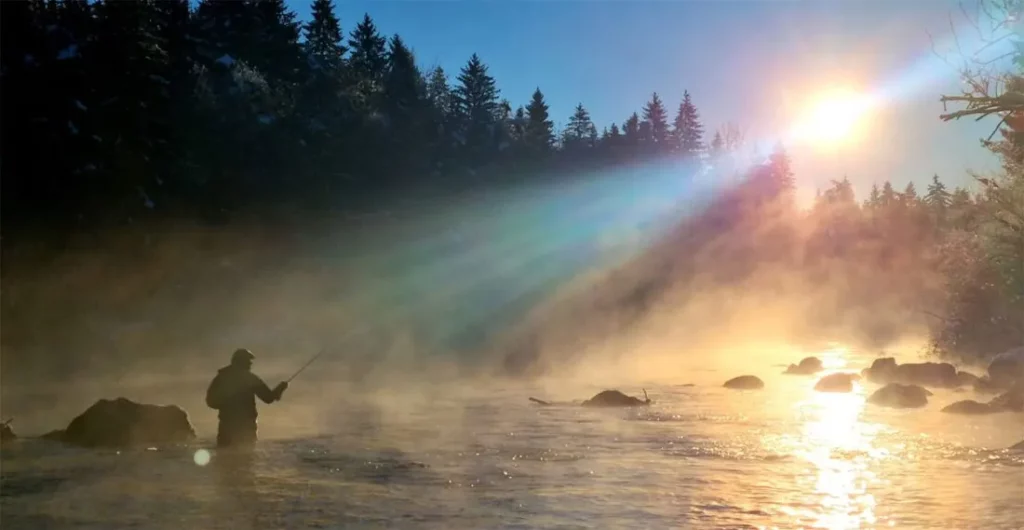
One Long Journey
One of the things I love about fly fishing is that you never stop learning. You can get familiar with the basics of casting and fishing reasonably quickly, but the art and science of fly fishing takes time to master. I still make mistakes nearly 40 years after first picking up a fly rod (I’d like to think fewer now than then). And I’ll still be making mistakes right up until my last cast. But with every article or book I read about it my theoretical knowledge grows, and with every fishing trip so does my practical knowledge too.
Fly fishing provides a lifetime of learning and improving, of challenging yourself, trying different things until you work out what works. And what works one day doesn’t always work the next. Heraclitus, an ancient Greek philosopher from around 500 BC, said:
“no man ever steps in the same river twice, for it’s not the same river and he’s not the same man”
But that’s the fun of it, the constant learning, the variety, the challenges, pitting your wits against the fish and the conditions. Fly fishing can be as all-consuming as you want it to be. It’s a hobby and passion that can be with you throughout your life, an ever giving partner, an endless source of enjoyment, despite whatever else is going on. It’s one long journey that makes you feel good.
not the same river…a section of the author’s home beat on different days late and early season:
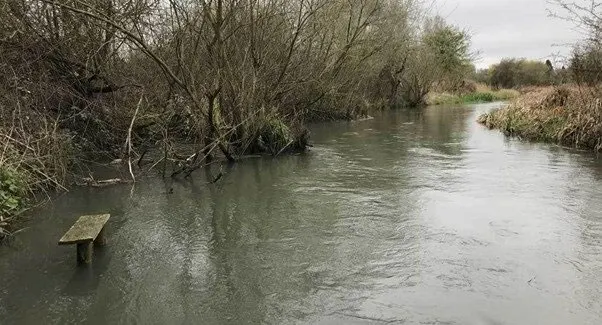
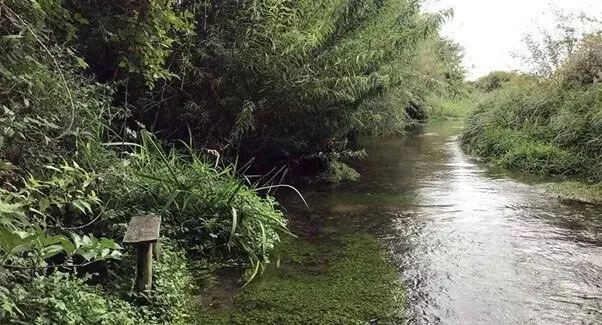
Many Short Journeys
A fishing trip can be split into 3 parts:
Anticipation
Enjoyment
Recollection
There’re two types of anticipation for me. Firstly, there’re the months and weeks leading up to the opening of the trout river season, a time of checking over tackle, replenishing fly boxes and wondering how the river might have changed, what tactics I might use and when. Then there’s the giddy anticipation the day before an actual fishing trip, getting your gear packed, keeping an eye on the weather and water conditions, and if you’re fishing with a friend usually a healthy exchange of eager WhatsApp messages full of hope. Both these two types of anticipation still fill me with a childlike wonder and excitement.
Then of course there’s the actual enjoyment of the day itself. A great cast to a tricky place, the satisfaction of adapting tactics to outwit an unwilling quarry, watching a fish released, a nice lunch by the riverside, damsels dancing in the air, the flash of a kingfisher swooping past, plucking a blackberry from the brambles that caught your fly when casting, the sounds of the countryside, not thinking about work or life, just being in the moment in a place of beauty.
And when it’s over, then there’re the happy recollections, not just later that day as you smile thinking back, but also the amazing moments and memories that keep you going through the winter months when the season is closed. Anticipation, enjoyment, recollection. Every time you go fishing. Many short journeys that simply make you feel good.
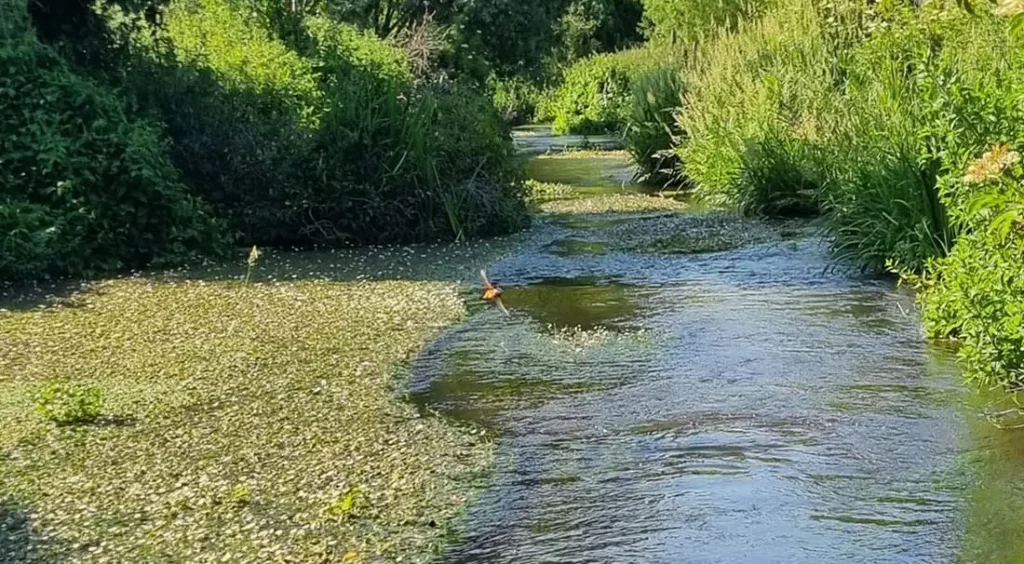
Fishing As Therapy
In 2021 fishing was officially prescribed by the NHS to help people suffering with anxiety and depression. Farlows sister brand Sportfish, which runs the Sportfish Game Fishing Centre with two spring-fed crystal clear trout fishing lakes, is now an approved supplier and partner for the Get Fishing For Wellbeing program from the Angling Trust, the national fishing governing body.
Fishing as therapy is nothing new – for decades there have been fly fishing charities supporting military veterans to cope with Post Traumatic Stress Disorder (PTSD) and combat fatigue. Fly fishing is proven to be an effective therapy for PTSD – research from the Universities of Utah, South Maine and Salt Lake City in the USA has shown that a short course of instruction can result in a 20% reduction in PTSD symptoms.
A new feature film starring Brian Cox just released in America features an old Vietnam veteran and a young Afghanistan one finding healing for their traumas through fly fishing and friendship. It’s called Mending the Line (not to be confused with the 2014 film of the same name about a 90 year old WWII veteran returning to Normandy to fish the rivers he saw as a soldier).
Lucy Bowden, Farlows Group Marketing Executive and a Level 2 Angling Coach, has been helping UK charity Fishing For Heroes since 2013 (www.fishingforheroes.com). They provide fully funded fly fishing courses and instruction as therapy for veterans and serving soldiers, seamen and airmen of the British and Commonwealth Armed Forces.
After the initial course, they are introduced to a mentor in order to establish a bridge back into society via the game fishing community, and the charity continues to support and help them through continued contact and organising group fishing events. Lucy says:
“they turn up in the morning and you just don’t know what it has taken for them to get to the event. Many of them suffer from severe anxiety and often it’s the first time they’ve stepped out the house for a number of days, or even weeks. They can arrive quiet, subdued, and very much keeping themselves to themselves. But, as the day progresses, more often or not they slowly come out of their shell, have a laugh and a joke, and catch a few fish. That’s why I do what I do – if I can give these people just one day out of many where they can laugh and forget about everything else, then that’s what makes it worthwhile”
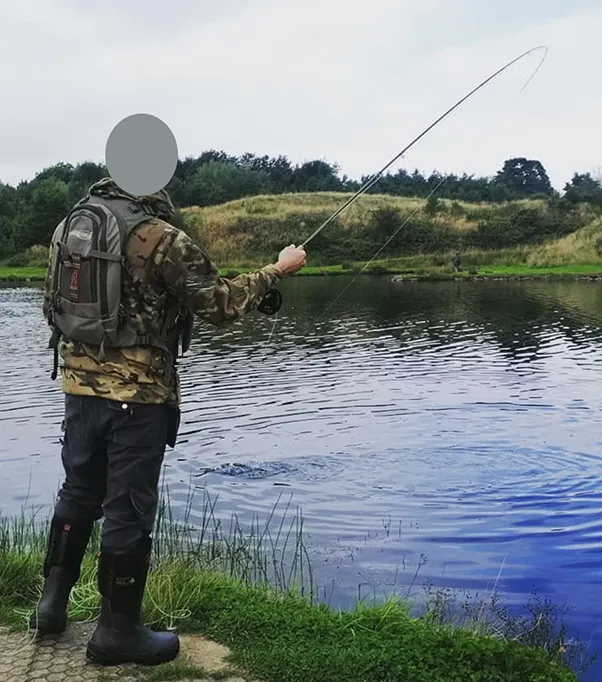
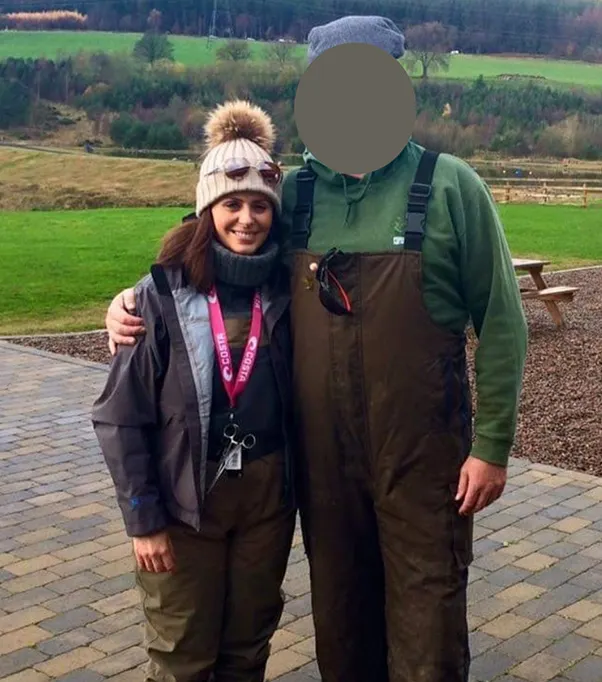
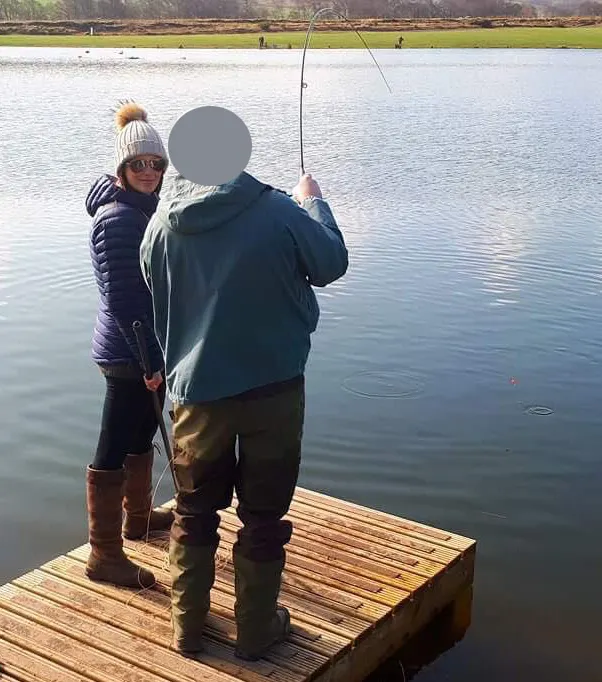
Equally there are a number of charities that look to help those undergoing the trauma of cancer through the benefits of fly fishing, such as the Cancer and Pisces Trust or Castaway, whose most recent event in June Sportfish was delighted to host at the Sportfish Game Fishing Centre.
The BBC’s hugely successful TV show “Mortimer & Whitehouse: Gone Fishing”, now in its 6th series, is all about fishing as therapy. Its origins lie in Paul Whitehouse discovering Bob Mortimer wasn’t going out anymore following his triple heart bypass surgery and inviting him out fishing. Mortimer loved it and later said:
“I’ve never felt anything like it. There comes a moment when you realise that you’ve said nothing for an hour and a half. I haven’t thought about anything else. I haven’t worried about the past, or future”.
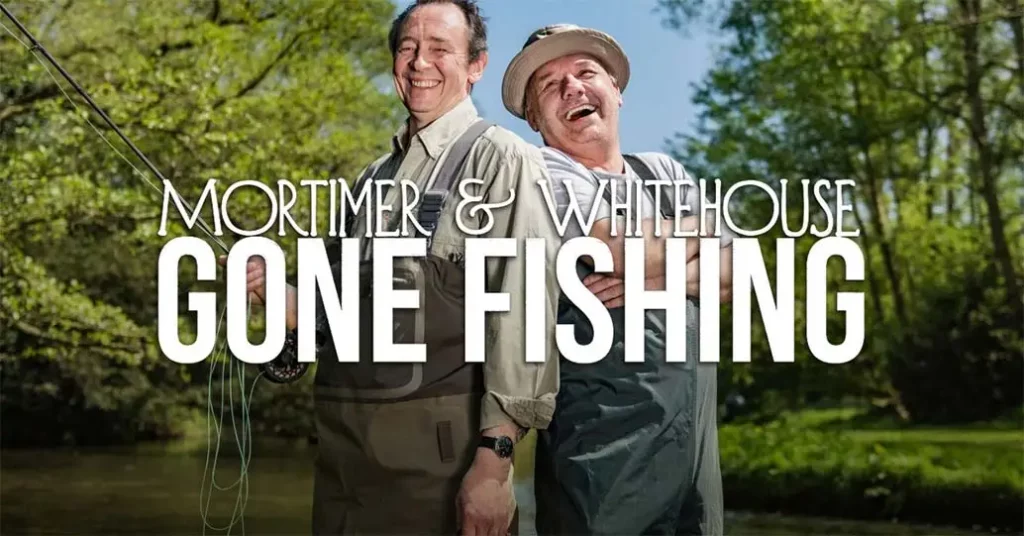
TV actor Jim Murray, perhaps best known for his portrayal of Prince Andrew in The Crown, teamed up in 2021 with fellow actor and fly fisher Robson Green exploring how fly fishing can be used as therapy in ITV’s documentary series “Robson and Jim’s Icelandic Fly Fishing Adventure”.
Following the premature death of his 8 month old daughter, Jim said:
“it was an incredibly distressing, life changing time. One way I worked through the trauma was to go fly fishing. I could not find solace from therapy or speaking to friends. Fishing really seemed to help. Over the next four years I fished a lot. The most healing times were when I was in flow, fishing solo with my own thoughts. For me, like so many anglers, fishing is meditative and vital for my mental health. The rhythmic repetition of casting in the cathedral of nature – fish tend not to live in ugly places – with the sound of water and my focus on targeting something is so restorative. Fishing changed the way I process everything. To this day, all my problems are solved on the river.”
Robson credits fishing with saving him after he turned to drink and drugs following his early TV fame:
“I needed something in life that made sense and, for me, fishing makes sense. Early on in my acting career I was reckless. It was all about Robson. But I’ve learnt so much from fishing and have an inner peace now that had been missing. It has been and still is my road to Damascus”
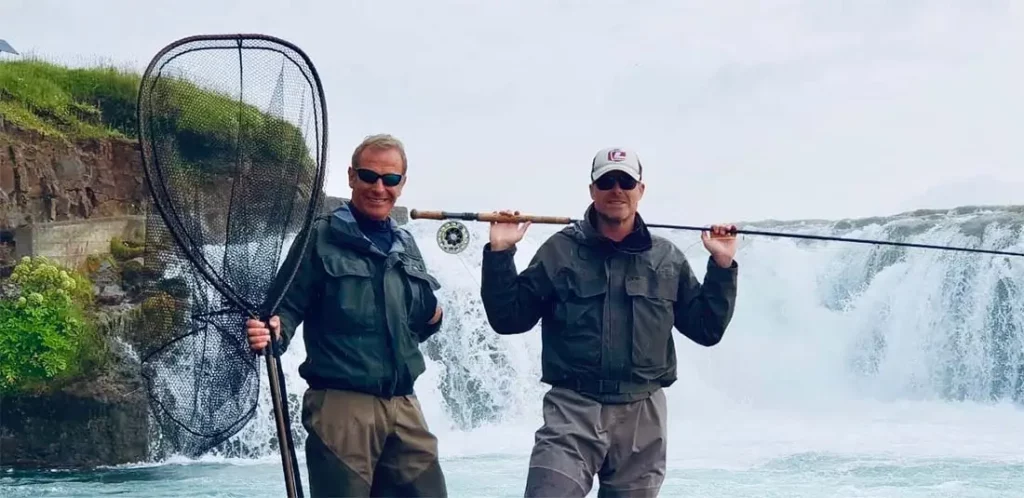
Tackling Minds (www.tacklingminds.org), is a UK charity providing angling events and support to people struggling with a range of issues such as mental health, social deprivation, addiction and disability.
In 2022 they teamed up with Anglia Ruskin University‘s Professor Lee Smith to research the relationship between recreational fishing and mental health in a sample of UK adults.
The results firmly established the links between fishing and improved mental and physical health. It surveyed approximately 1,900 UK adults online and found that, of those people who said they participated in recreational fishing, significantly fewer stated that they suffered from an anxiety disorder (16.5% versus 26.4%). Those who fish had fewer attempted suicides (7.5% versus 13.2%). Importantly, those who fish engaged in less deliberate self-harm (10.4% versus 20.6%) when compared to those that do not fish. Professor Smith commented:
“this would suggest that encouraging participation in fishing could be a good dual-method strategy for both promoting relaxation and good mental health, as well as encouraging increased levels of physical activity within those with mental health issues such as anxiety disorder.”
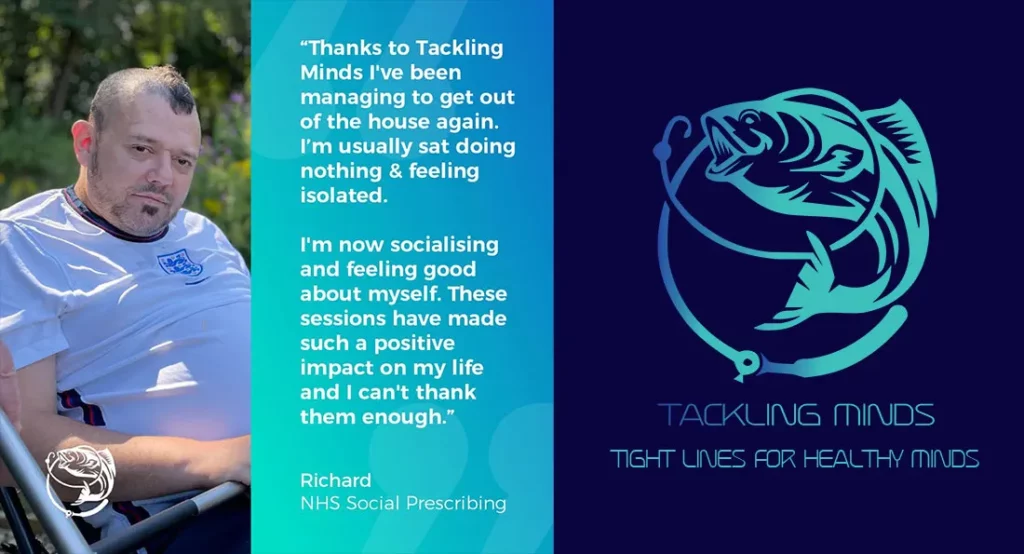
The Science Behind The Wellbeing
According to The Royal College of Psychiatrists there are 4 key areas as to why fly fishing is so beneficial for your health:
It involves a therapeutic engagement with nature and green-blue spaces, leading to a positive effect on your subjective happiness, satisfaction, relaxation levels and overall emotional wellbeing
It can support personal development, including new resilience and coping skills, and provide a sense of purpose and a network of positive relationships to improve psychological wellbeing
It provides opportunities to join clubs, participate in social events, take on new responsibilities, and engage in volunteering or coaching, all integral to social wellbeing
It requires various levels of physical exertion from walking, wading and repeatedly casting, which can increase physical wellbeing
When fly fishing, you’re concentrating solely on what you’re doing and the beauty of where you’re doing it. For hours, all the pressures of work, home life and the modern world are forgotten. This leads to lower stress levels, and studies show this reduction in cortisol (stress hormone) can have a positive effect for up to 3 weeks.
With an opportunity to learn new skills, meet new people in both a sociable setting and have some tranquil time with just yourself in nature, it’s no surprise there’s a new generation using fly fishing as a form of meditation and a means to support their physical and mental wellbeing. Especially given these days neither the kit nor the fishing itself needs to be expensive, and good fly fishing can be found pretty much everywhere.
Search fly fishing on Instagram and you’ll find a world of fly fishing fanatics and influencers, many of them female, posting beautiful images that seem a world away from many people’s outdated image of privileged old duffers in tweeds.
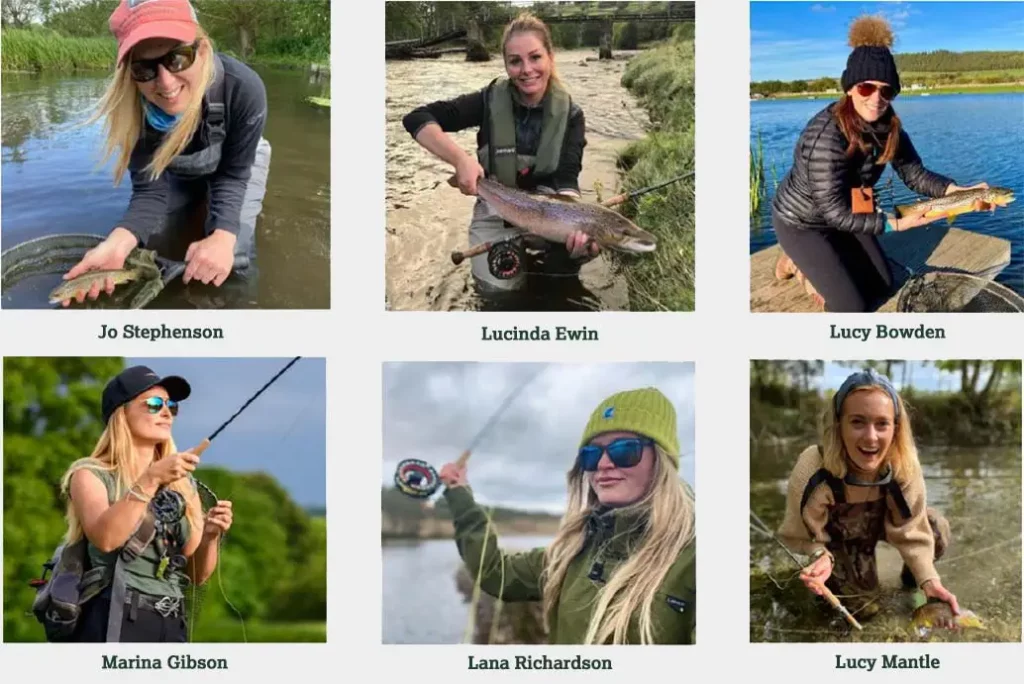
It’s not just social media driving the change. A recent article for Lonely Planet featured the headline “The perfect antidote to sterile city life – why fly fishing has millennials hooked” (Could fly fishing become the new millennial travel trend?).
UK journalist Estella Shardlow recently tried fly fishing for herself and wrote about it in an article for The Sunday Times (Keeping it reel: why millennials are practising mindful fly‑fishing). She says:
“the rhythmic casting allows my mind to become saturated by nature: ripples reflecting on bark; hawthorn and apple trees frothing with blossom; meadows dusted with dandelions and buttercups. A sudden plop snags my attention — not a fish, but a water vole taking a morning dip. Then a tapping makes me raise my eyes to a nearby branch where a woodpecker has settled. This is a more effective mindfulness practice than any app I’ve tried”.
She goes on to quote Oscar Boatfield, a co-founder of the British outdoors brand Bear, who is emphatic about the mental health benefits of fly fishing:
“You can go into something called a ‘flow state’ — a form of meditation — through the repetitive physical movement and intense focus on the position of the fly on the water. The mind blocks out normal thoughts and emotional chatter. It gives your mind and body time to heal without you even knowing about it.”
There are even credible rappers making songs about the positive wellbeing benefits of fishing, such as Canadian hip-hop artist Abdominal (aka Andy Bernstein). To steal from the Lonely Planet headline above, one of their songs is all about fishing as an antidote to sterile city life. It includes the lines “Fishing you could say is an escape from reality, but I would say it’s more like an escape to reality, ‘cuz sadly the supposed reality we’re living in seems lackin’ in its focus on what matters for existing in a balanced state”.
The song won’t be to everyone’s musical taste (you can listen to it here on YouTube), but the lyrics are well worth a read.

The Proof Is In The Pudding
For some it’s hiking, cycling, jogging or something more extreme that helps their wellbeing. For a huge amount of us (last year nearly one million rod licences were sold by the Environment Agency in England and Wales), it’s fishing. When we asked our Farlows customers in an online survey this year, 97% of them said that fly fishing significantly improves their mental health and 98% said it significantly improves their general wellbeing.
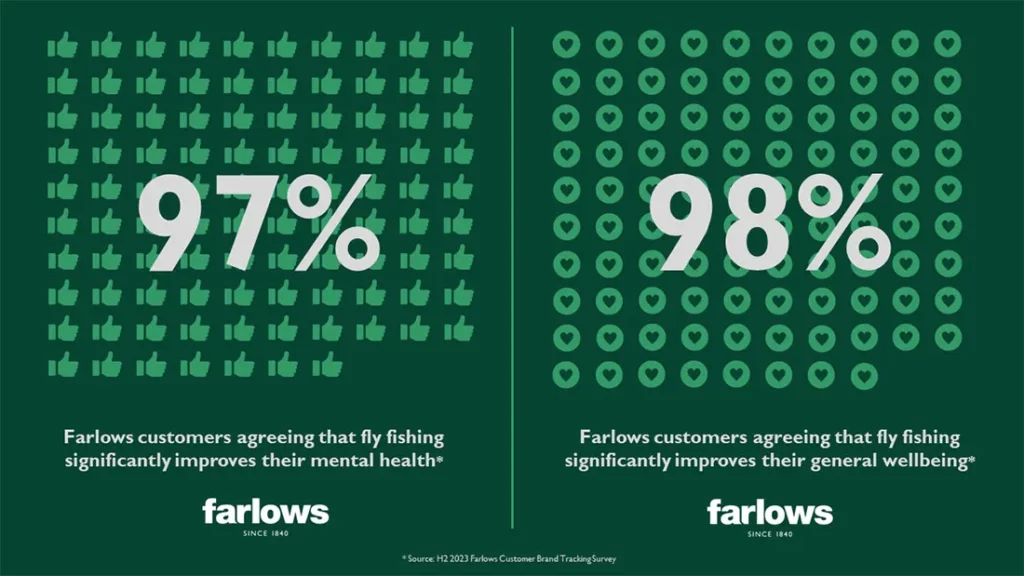
For some though there’s another aspect, less about fly fishing allowing you to put your concerns and worries temporarily aside, more about putting them into place. Fly fishing author John Gierach puts it best when he says:
“they say you forget your troubles on a trout stream, but that’s not quite it. What happens is that you begin to see where your troubles fit into the grand scheme of things, and suddenly they’re just not such a big deal anymore.”
I wrote earlier about if fly fishing isn’t really about catching fish, why do we do it, and that we do it for a whole bunch of reasons, all of which can all be narrowed down to one answer – how it makes us feel.
It’s That Simple. Go Fishing, Feel Better.
A research study this year of over 1,700 men by Anglia Ruskin University in Cambridge, Ulster University, and Queen’s University, Belfast found that men who fished regularly were 17% less likely to experience depression and anxiety – and the more they fished, the greater the impact.
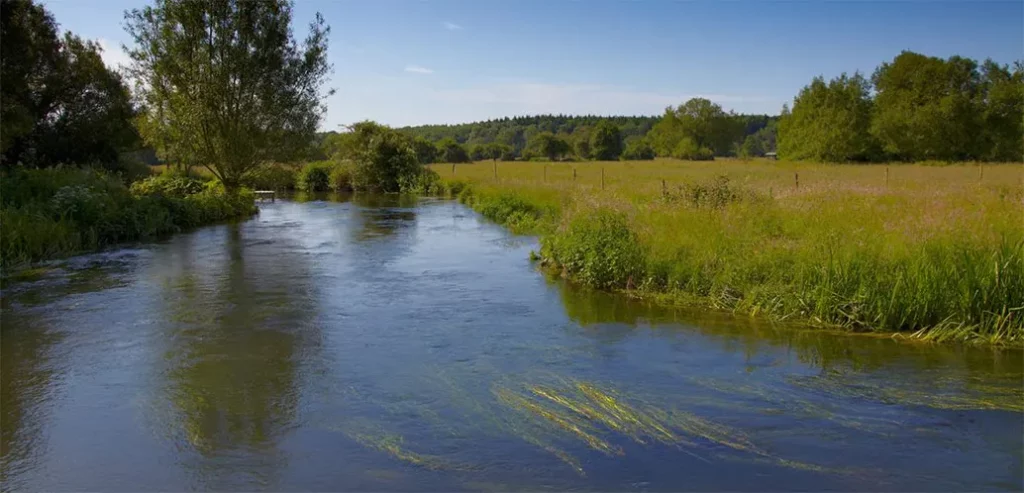
So get back into fly fishing or start learning how to do it. And before you go, remember, as Patrick F. MacManus said:
“the two best times to fish is when it’s raining and when it ain’t”.
